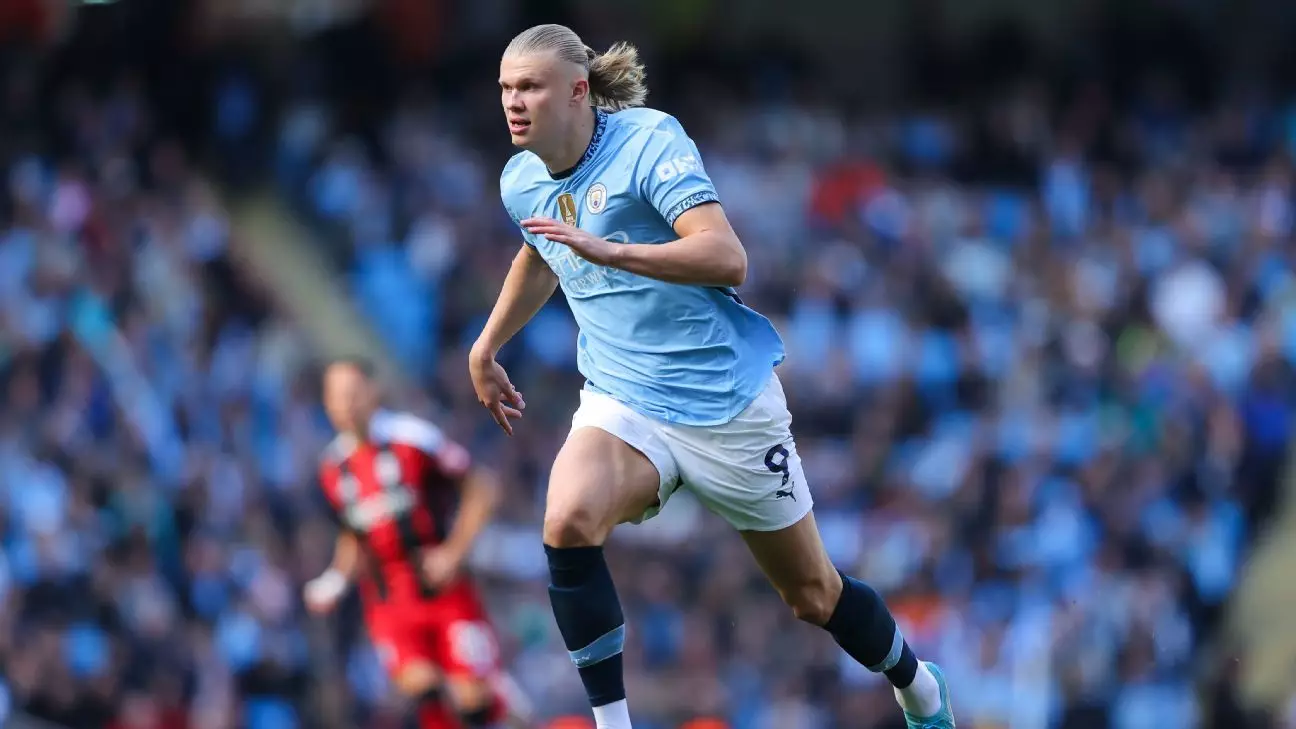Barcelona’s sporting director, Deco, has recently laid out the club’s strategy for the upcoming transfer windows, which reveals a noteworthy commitment to leveraging existing talent rather than pursuing high-profile signings. Under the astute management of coach Hansi Flick, the Catalan giants are not only leading LaLiga but are also on track to secure their place in the Champions League knockout stages. This promising position underscores a strategic pivot for the club, emphasizing stability and performance over market activity.
With this context, Deco has sought to quell rumors linking the club to potential signings including Manchester City’s Erling Haaland and Sporting CP’s Viktor Gyökeres. Addressing these issues, Deco made it clear that the focus is presently on optimizing the current squad rather than making unnecessary splashes in the transfer market. He relayed to El Mundo Deportivo, “First we have to know whether Haaland is what we want for the future. We don’t know that now.”
The apparent de-prioritization of a traditional “number nine” is especially significant, considering that Robert Lewandowski, the club’s seasoned striker, continues to deliver results. Currently the top scorer in LaLiga, Lewandowski has remarkably netted 14 goals this season alone. Deco emphasized the challenge of replacing a player of Lewandowski’s caliber, suggesting that options are limited at his level.
The situation reflects an underlying acknowledgment of the veteran striker’s contributions and an intent to support his role, rather than seeking replacements prematurely. “I think it’s very difficult to find a striker like Robert nowadays,” Deco remarked. The approach suggests that Barcelona is not merely focused on superficial upgrades but rather on building a cohesive unit that can perform together effectively.
While Deco did acknowledge the talents of Gyökeres—who has been in scintillating form in Portugal—he reiterated that prioritization lies with the existing squad. The mention of Gyökeres serves to highlight how the club is keeping an eye on emerging talents while still remaining grounded regarding its immediate goals. Deco stated, “He has been scoring goals for some time in Portugal… but it’s not a priority for us right now.” This cautious approach signals a preference for developing talent already at the club and trusting the existing roster to deliver the desired results.
In terms of strategic decision-making, Deco’s comments indicate a commitment to long-term planning. He asserted, “When the time comes to make a decision… we will consider the options.” This foresight is crucial in football management, especially in a world where managerial decisions are often influenced heavily by short-term needs and market pressures.
Defensive Stability
The discussion is not limited to attacking prowess; Deco has also sought to address concerns regarding Barcelona’s defensive lineup. The arrival of Polish goalkeeper Wojciech Szczęsny adds depth to a position that recently faced a significant setback with the injury of Marc-André ter Stegen. Deco has stated the need for a focus on ter Stegen’s recovery, indicating that the club is not interested in scrambling for additional goalkeeping options at this time.
In a world where custodianship can be fraught with uncertainty, this streamlined focus on ter Stegen’s return highlights a belief in the talent already present at the club. As Deco articulated, “Marc still has three years left on his contract. He is young for a goalkeeper, 32 years old, and we have to focus on him recovering well.”
Lastly, Deco has also confirmed that the club’s interest in Spanish forward Nico Williams has waned. Williams opted to stay at Athletic Club, which shows that Barcelona is prepared to respect player choices and shift strategies accordingly. “We brought in Dani Olmo, who was the priority,” Deco noted, reflecting a tactical pivot towards addressing immediate squad needs rather than chasing unattainable targets.
By taking a proactive approach through targeted signings, such as Olmo, and supporting existing stars like Lewandowski and ter Stegen, Barcelona seems intent on cultivating a culture of stability and long-term vision rather than falling victim to the allure of short-term fixes offered by the transfer market.
Barcelona’s transfer philosophy under Deco marks a shift towards a more measured and thoughtful approach in player acquisition. By valuing the contributions of current players and focusing on fostering a cohesive team environment, the club demonstrates an understanding of the importance of stability. In an era where clubs frequently chase headline-grabbing signings, Deco’s comments act as a reminder that sometimes the best moves are the ones that prioritize team harmony and sustained performances over mere star power.

